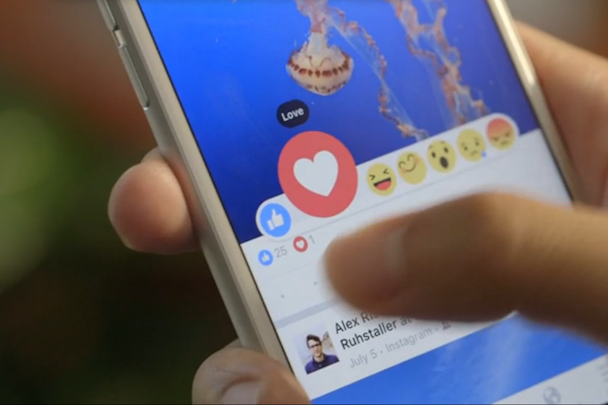What’s a newsfeed without news? Lack of subtlety sees no one ‘winning’ Australia’s news war
Adam Morton, managing partner of client services at creative media agency UM London, leads us through just what happened over the last few weeks when Australia lost news from Facebook.

As crowds returned to Melbourne Park to watch powerful tennis heats at the Australian Open, another battle down-under stole the headlines (literally). Facebook, in response to the ACCC News Media Bargaining Code looking to tax tech giants for publishing links to news sites, suddenly removed news content from its platform in Australia.
This long-running contest over online news is complex, with money, power and the fundamentals of the internet all part of the game. It’s a difficult one for all players to manage, which might explain some of the questionable tactics that have been employed throughout the match to date.
Starting with the ACCC, the code’s aim is to “address the fundamental bargaining power imbalance between Australian news media businesses and major digital platforms“. We can argue that the Australian government has an objective much broader than this. It wants to check the power of the tech giants, while at the same time assisting news publishers that have had their revenue streams suffer in recent years.
There is certainly a case that Facebook and Google have grown too big, and their dominance benefits neither our industry nor wider society. While no one can doubt the importance of journalism and the positive contribution ‘most’ news organizations make to communities and countries around the world, it is questionable whether the code tackles either issue correctly or even achieves its stated goal.
On the surface, the theory makes sense. Facebook and Google as aggregators with massive user bases have indirectly benefited from news brands’ content. They have taken audiences away from these publishers, which have suffered as a result. Marcus Storm from Australia’s union for journalists, the MEAA Media, Entertainment & Arts Alliance (MEAA), stated: “For nearly two decades Google and Facebook have built enormous fortunes off the back of aggregating content that others have made, and others have paid for. It is a business model that has literally destroyed newsrooms around the world.”
However, attributing all the challenges news brands have faced since the advent of the open web to these two feels overtly simple. The tech brands argue current arrangements already favor the publisher – that the snippets and links on their platform drive traffic to the news sites rather than taking audiences away. The value of which, albeit according to Facebook, was worth AU$407m (US$320m) to Australian publishers. Facebook was often the largest source of readers to these publishers.
A similar row played out across Europe six years ago. Google shut its Spanish news service prior to a law that would require it to pay for any news links. The subsequent economic analysis from the Spanish Association of Publishers of Periodical Publications (AEEPP) found the ‘link tax’ and the closure of Google’s News worked against publishers, especially smaller outfits. While in Germany, its largest news publisher Axel Springer reversed its decision to block Google from using content from its newspapers after traffic slumped. The imbalance in action?
Critics of the code state that, more than money, paying for links goes against the basic premise of the open web. That increased taxation and regulation would do a better job of curbing Silicon Valley powers and provide potential funding to help publishers. Unlike Google, Facebook doesn’t list anything itself. That’s done by users or organizations, such as news publishers that themselves actively choose to use the platform to generate links to their sites.
However, both Facebook and Google have made deals with publishers in various territories, although the nature of them differs. The deal Google struck recently with News Corp in Australia and elsewhere was in part to help protect these internet principles and avoid having to pay for news in search.
Of course, Facebook took a different stance and rather than strike deals in Australia pulled the plug on news. While it argues it was given no choice, the news ban only added to concerns that big tech is now more powerful than governments.
Australian prime minister Scott Morrison called Facebook’s actions “as arrogant as they were disappointing”, adding “they may be changing the world, but that doesn’t mean they run it”.
Following the move, questioning over anti-competitive behavior, tax avoidance and a lack of accountability is only going to get worse. Facebook’s PR disaster was not helped by the fact its blackout included taking government health and emergency pages offline by mistake. Australia’s health chief has now pulled media spend from Facebook, although curiously, some publishers are running Facebook ads telling readers to visit their websites directly.
Some say that how quickly Facebook turned off its publishers is evidence of how fast it could combat misinformation. It’s not exactly comparable.
Understandably, the publishers gleefully reported the almost universally negative response to Facebook’s action. #DeleteFacebook started trending worldwide (again), human rights organizations including Amnesty International raised concern. Facebook has managed to unite the public behind a law that was lobbied by Rupert Murdoch and greatly benefits News Corp: no mean feat.
With global support strengthening the Australian government’s resolve and Facebook unrepentant, it’s hard to see whose court the ball is now in. But this rally could be a game-changer.
Adam Morton is managing partner of client services at UM London.
